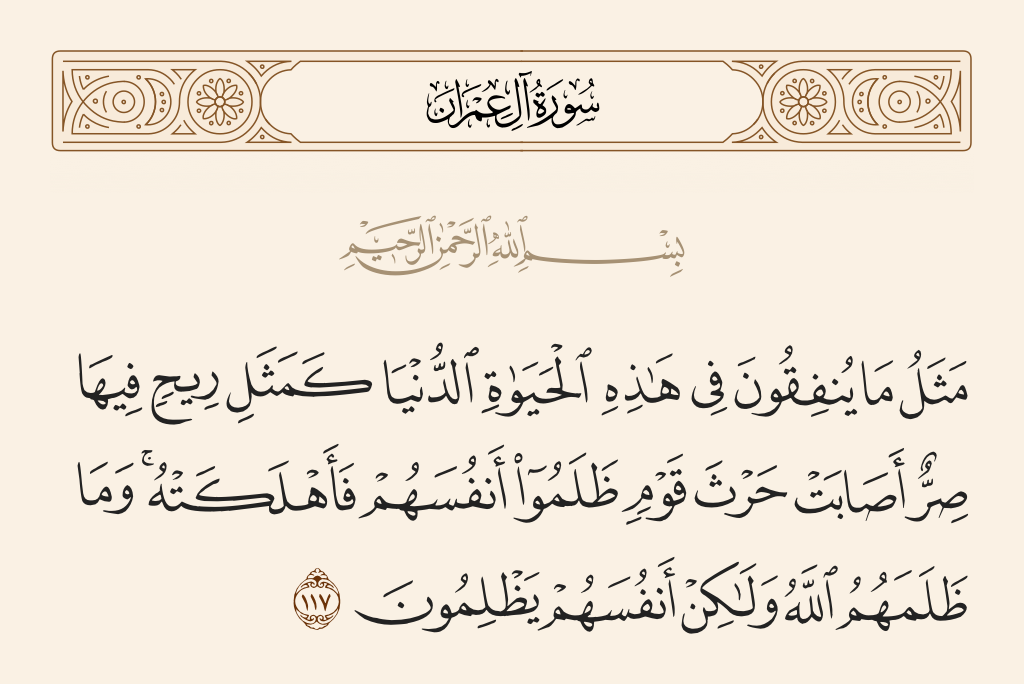Surat al-‘Imran Verse No. 117: Reading and listening
Translation of the verse 117 from Surah al-‘Imran : Number of verses 200 - - page 65 - Part 4.

﴾مَثَلُ مَا يُنفِقُونَ فِي هَٰذِهِ ٱلۡحَيَوٰةِ ٱلدُّنۡيَا كَمَثَلِ رِيحٖ فِيهَا صِرٌّ أَصَابَتۡ حَرۡثَ قَوۡمٖ ظَلَمُوٓاْ أَنفُسَهُمۡ فَأَهۡلَكَتۡهُۚ وَمَا ظَلَمَهُمُ ٱللَّهُ وَلَٰكِنۡ أَنفُسَهُمۡ يَظۡلِمُونَ ﴿
[ آل عمران: 117]
The likeness of what they spend in this world is the likeness of a wind which is extremely cold; it struck the harvest of a people who did wrong aginst themselves and destroyed it, (i.e. the good deed of a person is only accepted if he is a monotheist and believes in all the Prophets of Allah, including Christ and Muhammad SAW). Allah wronged them not, but they wronged themselves.
English - Sahih International
The example of what they spend in this worldly life is like that of a wind containing frost which strikes the harvest of a people who have wronged themselves and destroys it. And Allah has not wronged them, but they wrong themselves.
Tafheem-ul-Quran by Syed Abu-al-A'la Maududi
(3:117) The example of what they spend in the life of this world is like that of a wind accompanied with frost which smites the harvest of a people who wronged themselves, and lays it to waste. *91 It is not Allah who wronged them; rather it is they who wrong themselves.
Tafheem-ul-Quran by Syed Abu-al-A'la Maududi
*91). The term 'harvest' in this parable refers to this life which resembles a field of cultivation the harvest of which one will reap in the World to Come. The 'wind' refers to the superficial appearance of righteousness, for the sake of which unbelievers spend their wealth on philanthropic and charitable causes. The expression 'frost' indicates their lack of true faith and their failure to follow the Divine Laws, as a result of which their entire life has gone astray.
By means of this parable God seeks to bring home to them that while wind is useful for the growth of cultivation if that wind turns into frost it destroys it. So it is with man's acts of charity: they can prove helpful to the growth of the harvest one will reap in the Hereafter but are liable to be destructive if mixed with unbelief. God is the Lord and Master of man as well as of all that man owns, and the world in which he lives. If a man either does not recognize the sovereignty of his Lord and unlawfully serves others or disobeys God's Laws then his actions become crimes for which he deserves to be tried; his acts of 'charity' are but the acts of a servant who unlawfully helps himself to his master's treasure and then spends it as he likes.